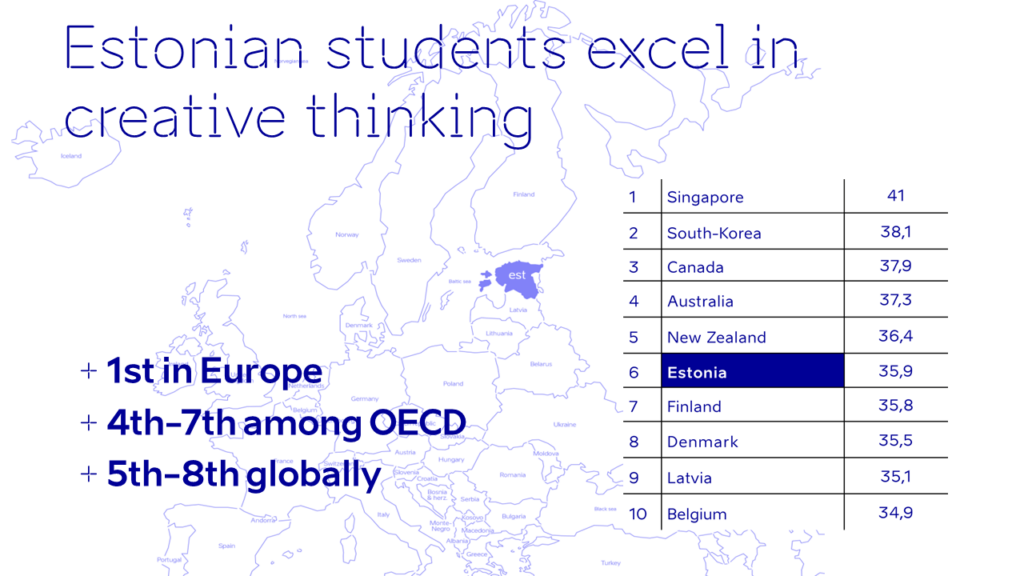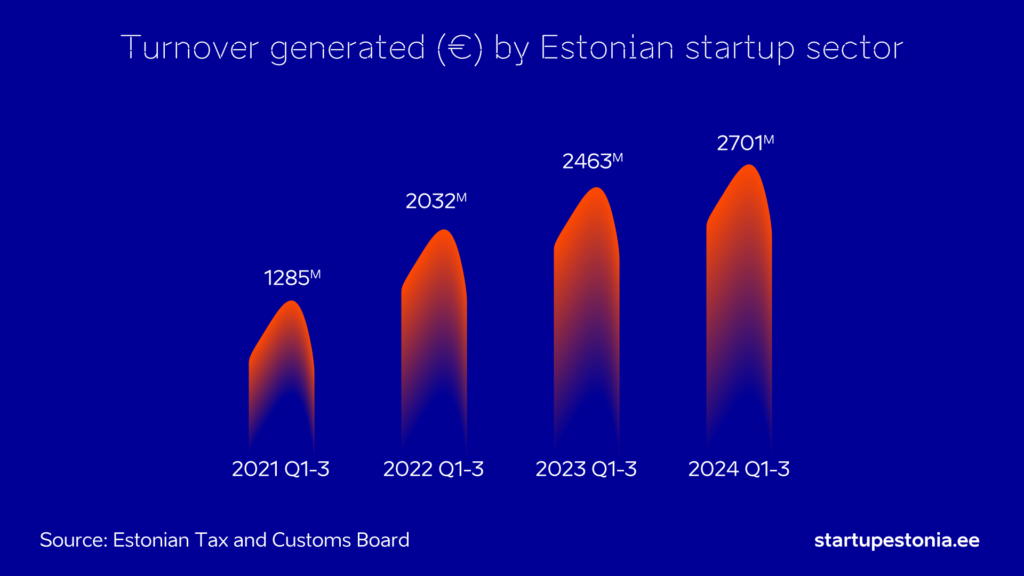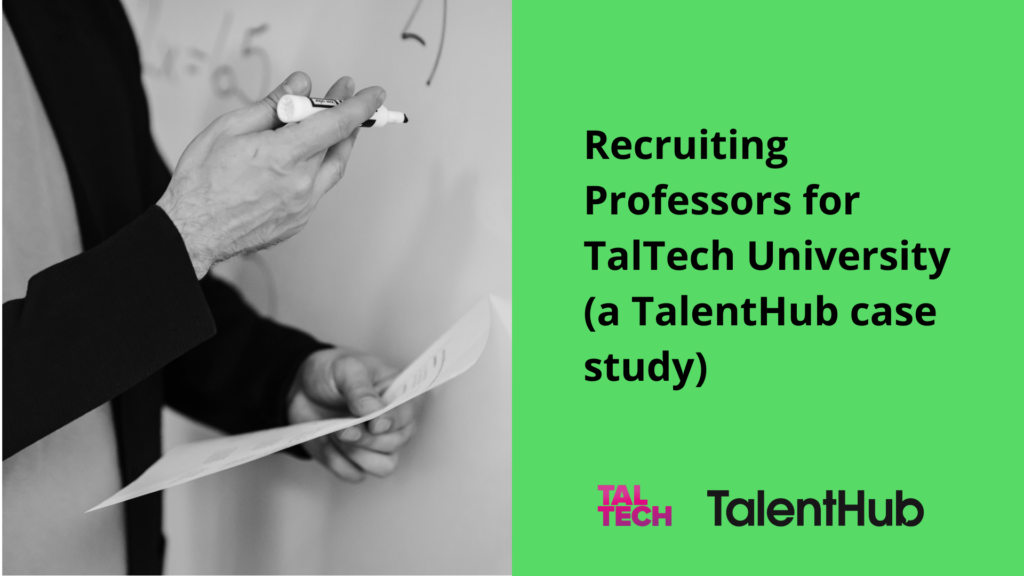Earlier in 2024, TalentHub, a recruitment partner for dozens of Estonian start-ups, partnered with Tallinn University of Technology (TalTech) on a project to hire foreign scholars, including two assistant professors and a tenured professor.
In this article, we explore recruitment challenges in higher academia, including attracting foreign candidates to Estonia and the country’s value proposition for foreign academics.
We talked to Merli Reidolf, Head of the Department of Business Administration at TalTech, and Triin Vinogradov, recruitment partner at TalentHub.
Let’s get into it!
Recruitment challenges in higher academia
Limited talent pool in Estonia
Hiring tenured professors typically means a global search for TalTech, says Merli. “Tenured professors are among the highest level specialists in higher education. Estonia is a small country, therefore the candidate pool for this role is naturally limited.”
Due to this, TalTech looked for an external partner to refine the search for global candidates. “We needed a recruitment partner with experience attracting foreign talent to Estonia. This particular role required the candidate to work closely with start-ups. It was a bonus that TalentHub has a close relationship with the Estonian entrepreneur community.” she adds.
Intense headhunting process
TalentHub recruitment partner Triin notes that talent sourcing in academia is significantly more time-consuming than in sectors like software development.
“As tech recruiters, we’re used to communicating with candidates on Linkedin. You can’t expect to find suitable academic candidates on the same platforms. You need to take a completely different approach.”
She adds, “For example, when recruiting tenured professors, we mapped out universities in select Western European countries with strong academic programs. From there, we identified suitable candidates who we could reach out to via email. It’s naturally a much more time-consuming process,” she adds.
Strict expectations for candidates
Another challenge is the strict rules governing academic hiring.
Triin notes, “Candidates, especially for senior academic positions, must have specific qualifications. There’s not much wiggle room, if at all — you can’t submit a candidate based on their vision and potential as you would when hiring in tech. In academia, the hiring manager won’t approve of them without proven qualifications,” says Triin.
“Due to this, we had to go through a thorough checklist to ensure candidates met the criteria, such as certain years of experience, the size of the projects led, and the number of PhD students taught,” she adds.
Estonia’s geopolitical location
According to Merli, another obstacle to attracting global candidates to Estonia is the country’s location.
“Given our proximity to Russia, we understand that some candidates may have reservations about moving here. It’s an objection we must overcome during the recruitment process,” she adds.
The value proposition for foreign academics
Despite the challenges, Estonia boasts a strong value proposition for foreign academics.
“Although we may not match Western countries in terms of financial compensation, there are multiple strengths that make Estonia an appealing destination for scholars,” says Triin.
Cost of living
One of these aspects is Estonia’s low cost of living compared to major European countries.
Merli emphasizes, “Although salaries in Estonia may be lower, the affordable cost of living, including rent and free education, makes it a compelling option.” It allows candidates to maintain a comfortable lifestyle while pursuing their academic careers.
To illustrate the living costs, Triin presented a detailed cost comparison to candidates using Work in Estonia’s cost of living resource and Numbeo. “It helped many realize how living expenses in Estonia are significantly lower than where they currently reside,” she explains.
Strong education system

Another appealing aspect of Estonia, especially for academics with children, is its education system, which ranks among the highest in Europe.
According to PISA 2022, Estonian children’s knowledge is among the highest in the world and among the highest in Europe.
Merli notes that many scholars who have relocated with their families have been impressed by the quality of education available.
“We’ve received great feedback about our teaching methods from candidates who have moved here with children,” she says.
Family-friendliness
In addition to its cost advantages, Estonia prides itself on being a family-friendly destination.
Triin notes, “We attract talent by offering access to international schools, short commutes, and a welcoming environment for families.”
“One candidate we recruited recently had a newborn and sought a location that allowed easy travel back to Germany. In Estonia, this is possible,” says Triin.
The presence of quality childcare options, coupled with a community-oriented lifestyle, makes it easy for families to settle in and thrive.
Vibrant start-up community

Despite its small size, Estonia boasts a vibrant entrepreneurial community. Home to over 1452 start-ups – and ranked one of the top start-up ecosystems in Europe – Estonia has the largest number of start-ups per capita in the world.
TalTech cooperates with several start-ups, creating a unique platform for academics to engage with innovative projects.
For the tenured professor role, candidates were expected to lead projects in collaboration with Estonian-based start-ups.
“We provide academics the opportunity to engage with innovative projects and collaborate with entrepreneurs,” says Merli.
Career Advancement
Securing a senior academic role in Western European countries like Germany can take decades.
Contrarily, in Estonia, applications for the same positions can be completed in as little as six months. Triin notes that this came as a positive surprise to most candidates.
“I had candidates for the tenured professor step into the recruitment process and expect it to take years. However, when I communicate the reality of Estonia’s system, they often react with surprise and enthusiasm,” she notes.
Achieving tenure in such a short timeframe opens up new possibilities for career development and allows academics to focus on their research and teaching.
Conclusion
Despite the hiring challenges in academia, including a limited talent pool, strict qualification requirements, and geopolitical concerns, TalTech has positioned itself as an attractive destination for foreign scholars.
The strengths of Estonia, including its low cost of living, family-friendly environment, strong education system, and vibrant start-up community, are all among the compelling reasons for academics to consider relocating.


